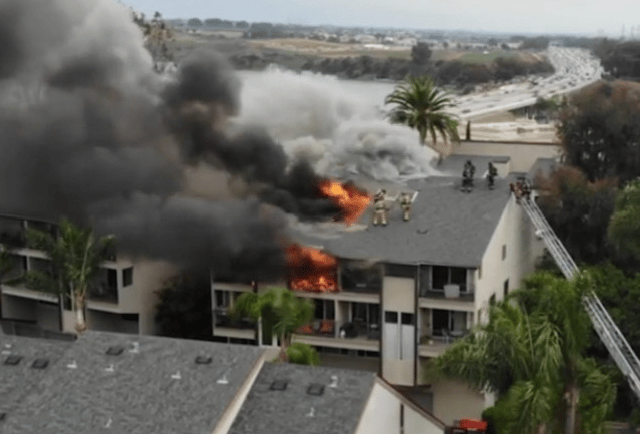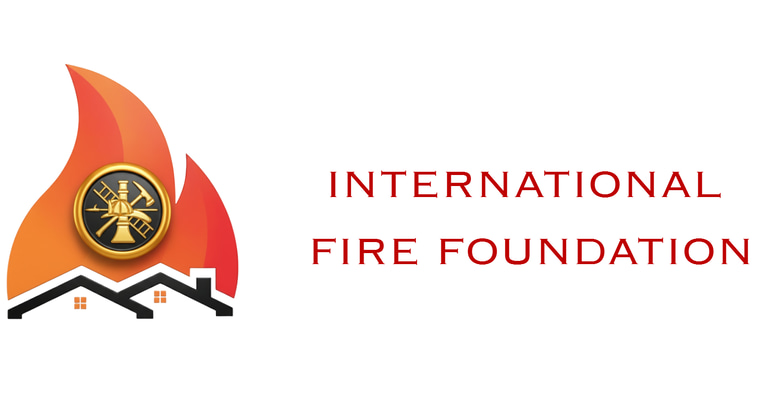PUBLIC SERVICE ANNOUNCEMENT: COMMUNITY SAFETY
6/27/20258 min read


Navigating Recovery – A Warning to Affected Families
When fire or disaster strikes, the period following can be overwhelming. During this vulnerable time, some individuals may attempt to exploit your situation. The International Fire Foundation (IFF) urges affected families to exercise caution and diligence when approached by individuals offering immediate services, such as public adjusters or contractors.
We advise against engaging with solicitors who approach you directly on-site or in the immediate aftermath of an incident. Conduct your own due diligence using FireGuide.org, CSLB.CA.GOV, INSURANCE.CA.GOV, BBB.org, and Uphelp.org.
Definitions:
Public Adjuster vs. Claims Adjuster (or Company/Staff Adjuster):
Claims Adjuster (or Company/Staff Adjuster): This is the adjuster assigned to your claim by your insurance company. Their primary role is to assess damage and determine coverage on behalf of the insurance company. They are paid by the insurance company and represent the company's interests. They do not charge a fee.
Public Adjuster: A licensed, independent insurance claims adjuster who works as a third party representative for the policyholder, not for the insurance company. They are hired by you to assist in preparing, presenting, and negotiating your insurance claim. Public adjusters charge a percentage of your final claim settlement as their fee.
Contractor:
A licensed professional or business hired to perform specific construction or repair work, such as rebuilding or restoring your property after damage. Contractors operate under a contract and are responsible for completing the agreed-upon tasks to specific industry standards.
Vendor:
A specialized professional or business hired to perform specific service, such as investigation or securing short, mid or long term housing replacements (Otherwise known as a Housing Vendor, like A.L.E. Solutions or Temporary Housing Directory). Vendors may be licensed or have special credentials, ensure to complete your due diligence on each vendor your insurance carrier introduces. Vendor operate under a contract with the Insurance Carrier, and may even be owned by the insurance carrier, and are responsible for completing the agreed-upon tasks to specific industry standards. Use of insurance referred vendors is discretionary, and may be subject to increase fees, costs or profit margins the policyholder pays for from their coverage.
CSLB.CA.GOV (Contractors State License Board):
This is the official website for the California Contractors State License Board (CSLB). The CSLB is the state agency responsible for licensing and regulating California's construction industry. You can use their website to verify a contractor's license, check their disciplinary history, and file complaints.
Insurance.CA.GOV (California Department of Insurance - CDI):
This is the official website for the California Department of Insurance (CDI). The CDI is the state's consumer protection agency for the largest insurance marketplace in the U.S. They regulate insurance companies and licensees (including public adjusters) to ensure compliance with state laws and protect policyholders. You can use their website to verify insurance professional licenses and file complaints.
BBB.org (Better Business Bureau):
A non-profit organization that provides information on businesses and charities to the public. They maintain business profiles, issue ratings based on adherence to ethical conduct, and offer a platform for consumer complaints and dispute resolution.
The official website of the International Fire Foundation (IFF). FireGuide.org serves as a vital resource hub for individuals and families affected by fire and disaster, offering educational materials, step-by-step recovery guides, and connections to trusted resources and support programs.
The International Fire Foundation has assembled a short advisory to help affected families navigate the unkind waters of initial recovery.
Below are critical red flags to recognize:
The Illusion of Choice:
Behavior: Individuals, including some licensed professionals, may "verify" or aggressively recommend other fire chasers (e.g., a public adjuster recommending a specific contractor, or vice versa) who are waiting nearby to offer services. This often creates a partnership designed to refer clients between the chasing organizations. If you witness this activity, report it to the CSLB.CA.GOV and INSURANCE.CA.GOV for unfair business practices.
Context: A contractor is unlikely to recommend another contractor, a direct competitor. However, some contractors have an unhealthy relationship with public adjusting firms to lock affected communities into contracts before they realize what is at stake. This coordinated recommendation between a public adjuster and a contractor can signal an arrangement that prioritizes their financial gain over your comprehensive recovery. If you witness this activity, report it to the CSLB.CA.GOV and INSURANCE.CA.GOV for unfair business practices.
False Sense of Urgency:
Behavior: You may encounter pressure to sign contracts immediately, often accompanied by claims that delaying will result in lost benefits, lower recovery amounts, or prolonged processes.
Public Adjusters: Public adjusters often hawk their services as free, which is incorrect. They may insist on immediate decisions, as engaging them typically means you can no longer directly negotiate with your insurance carrier. Be aware that public adjuster fees commonly range from 30% to 40% of your total claim settlement on a contingency basis. While there is almost always a payout from a valid insurance claim, hiring a public adjuster does not guarantee a higher settlement than if you navigated it yourself; however, it does guarantee forfeiture of a significant portion of your settlement to their fee. Under California Insurance Code § 15027.1, public adjusters are generally prohibited from soliciting residential properties in a catastrophic disaster area until seven calendar days after the disaster's conclusion.
Contractors: Contractors employing high-pressure tactics or exaggerating their ability to accelerate recovery or inflate claim values may be acting deceptively. California Business and Professions Code § 7116 (Fraud in Obtaining Contract) addresses fraudulent practices in contract procurement, contact the CSLB if exploitive actions are witnessed. Experienced and certified contractors will generally require a comparable timeline for repairs. Your recovery funds are concluded at your policy's coverage limits, regardless of the professional engaged.
Unwillingness to Grant Time for Due Diligence:
Behavior: If a public adjuster or contractor discourages you from speaking with your insurance carrier or assigned policy adjuster, or uses fear-mongering tactics (e.g., presenting exaggerated worst-case scenarios or threatening lawsuits), this is a significant red flag. Public adjusters may misrepresent the perspective of cost; stating it will cost a policyholder more later if they engage at a later date, this is disingenuous. The upfront contract of a public adjuster (30-40% of 100% of the policy), is significantly more than a claim settlement that needs to be negotiated after good faith arguments (60% of 20% of the policy). Understanding the perspective and false sense of urgency gives the policyholder power.
Context: Such tactics are often designed to compel immediate engagement before you can gather information from your insurer or assess your options. Many cases that lead to litigation with insurance carriers often involve public adjusters, potentially doubling the recovery timeline. Your insurance carrier is obligated to engage with you in good faith.
Recommendation: If a professional discourages communication with your insurer, withdraw from the conversation. Prioritize speaking with your insurance company representative. IFF advises against forfeiting 30-40% of your insurance policy coverage before engaging in settlement discussions with your carrier. If your insurance carrier demonstrates a consistent pattern of poor behavior or bad faith, then evaluate your options, including consulting legal counsel or a public adjuster who aligns with your recovery goals and budget.
In Summary: Adhering to these guidelines can protect you from unfair business practices and preserve the recovery funds available through your insurance policy. Be wary of anyone that comes off the street after an incident or disaster, do not engage with them. Conduct your own due diligence using the resources listed below for assistance in navigating your claim.
Conduct Your Own Due Diligence: Utilize established resources for assistance:
FireGuide.org: For recovery guidance and resources.
CSLB.CA.GOV (Contractors State License Board): To verify contractor licenses and report misconduct.
INSURANCE.CA.GOV: To verify public adjuster licenses and report misconduct of public adjusters and insurance carriers/representatives.
BBB.org (Better Business Bureau): For business ratings and reviews.
UPhelp.org (United Policyholders): A non-profit consumer advocate for policyholders.
IFF will never recommend or refer a public adjuster immediately after a disaster. IFF does not recommend engaging a public adjuster immediately following an incident or in the subsequent week.
IFF advises to first engage in good faith with your insurance carrier. If the carrier consistently displays poor behavior or bad faith, then consider:
a) File a complaint with Insurance.ca.gov about claim delays, adjuster issues or other complaints.
b) Conducting thorough due diligence on a public adjuster or legal firm that aligns with your objectives and budget.
c) Seeking legal counsel specializing in insurance policy law.
Due Diligence: Essential Questions to Ask Any Adjuster or Contractor
When interviewing any professional, ask these critical questions:
Are you licensed to practice [Public Adjusting/Contracting] in my state?
Action: Always ask to see their individual license. Verify it immediately on CSLB.CA.GOV for contractors or the California Department of Insurance website for Public Adjusters.
Will you be handling my claim personally?
Action: Beware if the representative is just a salesperson who will hand off your claim to someone else. Fire chasers are often just cold-calling salespeople, not the experienced professional who will actually manage your loss.
How many other claims have you signed up in this area?
Action: If a public adjuster takes on more claims than they can handle, you will not get the attention and care you need.
Tell me about your claim adjusting/construction estimating skills, credentials, and experience.
Action: How many years have they been licensed and practicing in California? Ask for specific examples related to fire damage.
Provide at least three references of local clients who were satisfied with your work.
Action: Ideally, ask for two claims they are actively handling and three claims they have finalized within the last year. Ask the finalized clients if they would engage with them again, knowing how much they paid as a contingency. (Some adjusters move between companies often, check their long-term association and reputation.)
Explain your fee contract in detail.
Action: Public adjusters work on contingency fees, typically 30% to 40% of the monies the insurer pays on your claim. While fees are negotiable, there is no fee cap in California for public adjusters on residential claims (though some other states have them). Agree upfront on whether the percentage includes funds the insurer already agreed to pay. If you only want them to handle portions of your claim, negotiate that upfront. IFF recommends an overall percentage fee of no more than 7%.
How will communication with the insurer/carrier work?
Action: If you want to stay involved in your claim, discuss this before hiring them. Most PAs do not typically allow the client to speak with the carrier after a contract is signed.
What is your fee structure regarding Additional Living Expenses (ALE) and other specific categories of insurance benefits?
Action: Few public adjusters will not take a fee on ALE. Make sure you have a clear understanding of this before you enter into a contract, as ALE is crucial for your immediate housing and living needs.
What is your Early Contract Termination Fee?
Action: Unlike with a contractor (where you typically only pay for work done if you terminate), a public adjuster may be owed "breach of contract" or termination fees that are hourly-based on work completed. These hourly fees can be significantly higher than the contingency percentage, placing an undue financial burden on you if you are unsatisfied with their representation.
Are there any legal constraints regarding contingency fees in my state?
Action: In some states, Public Adjusters cannot charge contingent fees unless they are associated with an attorney because it's considered the unauthorized practice of law. Always ensure they are operating legally in California.
Check for more detail on public adjusters and selection:
https://uphelp.org/claim-guidance-publications/public-adjusters-the-inside-scoop/
https://uphelp.org/claim-guidance-publications/making-the-best-choice-when-hiring-a-public-adjuster
These tips are intended for educational purposes only. No legal advice should be inferred from these materials.

Contact Us
CONNECT WITH YOUR COMMUNITY
International Fire Foundation is a registered 501(C)3 charity
EIN: 99-0435238
Community Leader Resources
11231 Camino Ruiz, San Diego, CA 92126
990 and Financial Data
